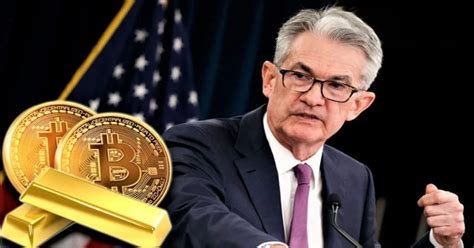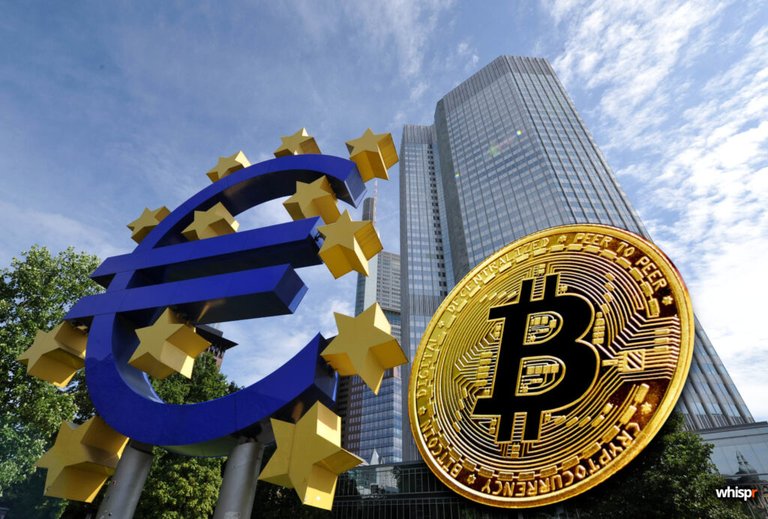
A new paper by the Federal Reserve Bank of Minneapolis has raised concerns about the potential impact of Bitcoin on government fiscal policies, suggesting it may need to be taxed or even banned to help manage public deficits. The Minneapolis Fed, one of the twelve regional banks of the Federal Reserve in the U.S., oversees the Ninth District, which includes parts of Minnesota, Montana, the Dakotas, Wisconsin, and Michigan. Its role is to implement monetary policy, regulate regional banks, and provide financial services to institutions and the government.
Key Insights from the Federal Reserve Bank of Minneapolis on Bitcoin and Fiscal Policy:
Bitcoin's Challenge to Permanent Fiscal Deficits:
- The report, published on October 17, argues that Bitcoin complicates efforts to maintain permanent public deficits, particularly in economies that rely heavily on nominal debt. It creates what the Minneapolis Fed calls a "fiscal balance trap," potentially forcing governments to balance their budgets. Bitcoin's fixed supply and lack of claims on real-world resources disrupt traditional fiscal strategies that rely on deficit spending.
The Disruption of Traditional Fiscal Policy:
- According to the paper, Bitcoin provides an alternative financial asset that undermines conventional fiscal policy. Unlike fiat currencies or commodities like gold, Bitcoin's supply is limited, creating complications for governments that rely on flexible monetary policies to manage deficits.
- The authors suggest that a legal ban or taxation on Bitcoin might be necessary to preserve governments' ability to maintain permanent primary deficits, where public spending consistently exceeds revenues, excluding interest payments on existing debt.

Impact of Rising National Debt and Interest Payments:
- The report underscores the gravity of the U.S. national debt, which has soared to $35.7 trillion, with a primary deficit of $1.8 trillion. Reuters recently reported that a significant portion of this deficit stems from rising Treasury interest costs, which have surged by 29% this year to $1.13 trillion, driven by higher interest rates and increasing debt levels.
- The Minneapolis Fed paper suggests that Bitcoin exacerbates these fiscal challenges by offering an untaxable or unregulated alternative to traditional financial assets, further complicating government efforts to manage debt and spending.
Proposal for Bitcoin Taxation or Ban:
- The paper's controversial recommendation is the implementation of either a tax on Bitcoin or a complete legal prohibition to prevent it from undermining the fiscal system. It argues that these measures would restore governments' ability to manage primary deficits sustainably. The proposal has sparked significant backlash, particularly from Bitcoin advocates.
Criticism from Bitcoin Proponents:
- The paper has drawn sharp criticism from Bitcoin supporters, including Matthew Sigel, head of digital asset research at VanEck, who noted the paper’s alignment with the European Central Bank's (ECB) critical stance on Bitcoin. Sigel pointed out that the Minneapolis Fed’s suggestion to impose bans or taxes echoes the ECB's call to regulate or restrict Bitcoin, particularly to protect government debt instruments as the primary "risk-free" assets.

Historical Context and Bitcoin's Design:
- Interestingly, Dan McArdle, co-founder of Messari, referenced a 1996 Minneapolis Fed paper titled Money is Memory, which eerily described key features of Bitcoin 12 years before its invention. The earlier paper conceptualized money as a fixed-supply entity that doesn’t enter production, a notion that closely aligns with Bitcoin’s design as a finite digital asset.
- This observation highlights the Minneapolis Fed’s long-standing awareness of the potential disruptive impact of fixed-supply financial instruments like Bitcoin on traditional monetary systems.
Parallels with the ECB’s Stance on Bitcoin:
- The Minneapolis Fed’s position mirrors that of the ECB, which earlier this month also called for either regulating or banning Bitcoin, citing concerns over wealth redistribution and financial stability. ECB governing council member Jürgen Schaaf has reiterated the need for policies to curb Bitcoin’s growth, suggesting that it threatens established financial systems.
Broader Economic Context and Bitcoin's Role as a Hedge:
- Critics of the Minneapolis Fed and ECB positions argue that these institutions fail to address the broader context of monetary inflation, which Bitcoin is designed to counter. For instance, the UK's public sector debt reached nearly 98% of GDP in 2023-2024, its highest level since the 1960s. In the U.S., the national debt surged to $35 trillion, fueled in part by a 41% increase in the money supply (M2) since 2020.
- The paper's assertion that Bitcoin has no intrinsic value yet poses a destabilizing threat seems contradictory, ignoring the inflationary pressures Bitcoin was intended to mitigate. As traditional currencies continue to lose purchasing power, Bitcoin’s role as a store of value becomes increasingly relevant, drawing more interest from both institutional and retail investors.

Conclusion: Bitcoin as a Growing Economic Force
The Federal Reserve Bank of Minneapolis has highlighted the growing tension between decentralized digital currencies like Bitcoin and government fiscal policies. While Bitcoin’s fixed supply challenges traditional fiscal systems dependent on debt, the paper’s call for potential taxation or prohibition has ignited debate. Advocates of Bitcoin argue that its decentralized nature and resistance to inflationary pressures make it a crucial hedge against the flaws in conventional monetary systems. As governments grapple with rising debt levels and fiscal instability, Bitcoin’s role in financial markets seems poised to expand, creating a complex dynamic between innovation and regulation.